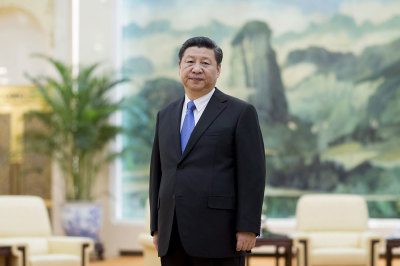China's Communist Party: A brief history
An enduring power

Despite protests and social change programs that resulted in millions of deaths, the Chinese Communist Party remains securely in power in the world’s most populous nation with increasing global influence.
Hart believes that this endurance was due in large part to “enormous economic growth,” saying that up until 2008, there was an “approximate 10 percent rise in GDP.”
State-sponsored force is another factor, with many, including Human Rights Watch, reporting an uptick in repression since President Xi Jinping took power in 2013.
“It has arbitrarily detained human rights defenders and lawyers, tightened control over civil society, media and the internet, and deployed invasive mass surveillance technology,” noted the organization.
“The government imposes particularly heavy-handed control in the ethnic minority regions of Xinjiang and Tibet. The government’s cultural persecution and arbitrary detention of a million Uyghurs and other Turkic Muslims since 2017 constitute crimes against humanity.”
HRW also noted that the CCP has been cracking down on the freedoms of Hong Kong and “initially covered up the COVID-19 outbreak and later hindered international efforts to investigate the virus’ origin.”
Dingler of ChinaAid told CP that Xi's “policy of ‘sinicization’ is one which makes the state-sanctioned religions more acceptable to socialist ideals, effectively crippling them of any authentic practice of their faith.”
“The Chinese Communist Party has a pretty tight grip on the internet, evidenced by how they immediately took down tennis star Peng Shuai's sexual assault allegation back in November,” he continued.
“They also heavily regulate their school system, so it remains impossible to get two sides to one issue. Christians in China actually take the risk of homeschooling their children instead of sending them to the ‘brainwashing centers.’”
Furthermore, according to The Associated Press, China was previously expected to improve its human rights record by 2008 as part of the agreement to host the Summer Olympics that year. But in 2022, such proposed conditions were “all but absent."
“If anything, there’s a lot less pressure than 2008,” said Amanda Shuman, a China researcher at the University of Freiburg, to the AP. “The Chinese government knows full well that its global economic upper hand allows it to do whatever it wishes.”




























